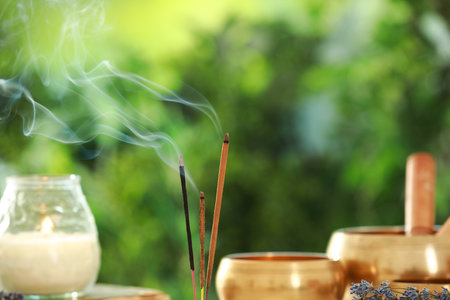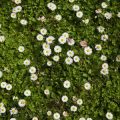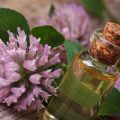A Tradition Rooted in British Gardens
Across the rolling hills and quaint villages of the UK, British gardens have long been cherished not only for their beauty but also for their practical uses. For generations, families have turned to their own backyards to cultivate a variety of herbs, each carefully chosen for its soothing properties. This tradition is deeply woven into the fabric of British life, reflecting a time-honoured respect for nature and the gentle power of local botanicals. Lavender borders and chamomile patches are more than just picturesque additions; they are living apothecaries, providing natural remedies that find their way from garden beds to comforting teacups at bedtime. By nurturing these homegrown plants, Britons celebrate a heritage that values wellness through simplicity and a close connection with the land.
2. Popular Local Herbs for Better Sleep
Across the British Isles, local gardens have long provided a gentle bounty of herbs cherished for their calming qualities and ability to support restful sleep. Embracing both tradition and nature’s wisdom, Britons commonly turn to a handful of quintessentially British botanicals—each with its own soothing history and role in bedtime routines.
Chamomile: The Classic Nightcap
Perhaps the most beloved sleep herb in Britain, chamomile has been steeped as a bedtime tea for generations. Its delicate daisy-like flowers contain apigenin, an antioxidant known to bind to certain brain receptors that help decrease anxiety and initiate slumber. Chamomile’s light, apple-scented infusion is often recommended by grandmothers across England as a gentle nudge towards relaxation at the end of a busy day.
Lavender: Fragrance for Peaceful Dreams
With its signature purple spikes and calming fragrance, lavender is another staple found in cottage gardens and city parks alike. Traditionally, sprigs were tucked into pillows or dried bunches placed beside beds to aid sleep. Modern research also supports lavender’s reputation for reducing restlessness and improving sleep quality when used as an herbal tea or essential oil in aromatherapy.
Valerian: Nature’s Tranquiliser
Less showy but deeply effective, valerian root has been trusted since medieval times for its sedative properties. While its earthy flavour may be an acquired taste, many Britons brew valerian tea or combine it with other herbs like lemon balm for a natural way to ease tension and encourage uninterrupted sleep.
Comparing Popular British Sleep Herbs
| Herb | Main Benefit | Traditional Use |
|---|---|---|
| Chamomile | Reduces anxiety, promotes relaxation | Bedtime tea, herbal compresses |
| Lavender | Eases restlessness, improves sleep quality | Pillow sachets, teas, aromatherapy |
| Valerian | Helps with insomnia, calms nerves | Brewed root tea, tinctures |
A Tradition Rooted in Wellbeing
The continued popularity of these herbs speaks to Britain’s enduring connection with its native flora and the gentle power of plant-based remedies. Whether grown on allotments or gathered from countryside hedgerows, these time-honoured botanicals remain at the heart of many British nighttime rituals—nourishing both body and mind as dusk falls.

3. From Harvest to Home: Preparing Herbal Sleep Aids
There is something deeply satisfying about gathering herbs from your own garden or a local allotment, knowing that each leaf and petal will soon become part of a calming bedtime ritual. Across Britain, people take care to harvest their sleep-promoting botanicals—such as chamomile, lavender, lemon balm, and valerian—during dry weather, ideally in the morning when the essential oils are most potent. The gentle act of snipping fresh sprigs is often done with simple scissors or secateurs, making sure to leave enough behind for the plants to flourish year after year.
Once collected, drying is an important step in preserving both the flavour and the natural benefits of these herbs. Traditionally, Britons might tie small bunches and hang them upside down in a cool, airy space away from direct sunlight. Others may prefer spreading the leaves on a clean tea towel or mesh tray to allow air circulation. This slow, careful process helps retain the soothing properties so valued in evening teas and infusions.
When it comes to blending, there’s plenty of room for creativity and personal taste. Many favour mixing chamomile with a hint of mint for freshness, or pairing lavender with lemon balm for a gently floral cup. For those who like a more earthy note, valerian root can be added sparingly. Each household tends to develop its own signature blend, often passed down through generations or shared among friends and neighbours. Whether steeped loose in a teapot or tucked into homemade muslin sachets, these hand-prepared herbal mixes transform into fragrant teas that soothe both body and mind as night draws in.
4. The Ritual of Evening Tea in British Culture
In the UK, the act of brewing and enjoying an evening cup of herbal tea is far more than a mere beverage choice—it is a cherished ritual that embodies relaxation, reflection, and connection to nature. For generations, Britons have turned to their gardens and local green spaces, gathering herbs not just for culinary purposes but also to support their wellbeing at the close of each day. This mindful practice centres around the belief that a warm infusion can gently guide body and mind towards restful sleep.
The tradition of evening tea often unfolds with a sense of ceremony. Families or individuals select fresh or dried herbs—such as chamomile, lavender, lemon balm, or valerian—carefully prepared to release their soothing aromas and natural compounds. These local botanicals are chosen both for their comforting flavours and their reputed calming properties.
Many households enjoy blending their own herbal mixes, tailoring each cup to suit personal preferences or seasonal availability. The process itself becomes a meditative pause—a moment to slow down after a busy day, inhale the gentle steam, and let go of lingering stress.
Below is a table showing popular locally grown herbs in Britain and their traditional uses in evening teas:
| Herb | Main Benefit | Traditional Use |
|---|---|---|
| Chamomile | Calms the mind | Brewed before bed to ease insomnia |
| Lemon Balm | Reduces anxiety | Infused for relaxation and mild sedation |
| Lavender | Smooths tension | Added for its fragrant aroma and gentle sedative effects |
| Valerian Root | Encourages deep sleep | Used sparingly for its strong sleep-promoting qualities |
This time-honoured ritual does more than prepare the body for slumber—it fosters gratitude for local abundance and nurtures a wholesome relationship with nature. By consciously integrating homegrown herbs into their evening routines, Britons continue to embrace the simple, nourishing pleasures that support relaxation and healthy sleep.
5. Modern Adaptations: Herbal Sleep Remedies Today
In today’s fast-paced Britain, the timeless tradition of using local herbs for sleep has found new life in modern routines. While the wisdom passed down through generations remains treasured, contemporary Britons have adapted these age-old remedies to suit their lifestyles and preferences.
Specialist tea shops now flourish across the UK, offering an array of herbal blends tailored for relaxation and restful sleep. These establishments often showcase locally grown ingredients such as lavender, chamomile, and lemon balm—herbs celebrated for their calming properties. Visitors can enjoy a soothing cup in cosy surroundings or purchase blends to brew at home, keeping the connection between gardens and teacups alive.
Meanwhile, many people are rediscovering the joys of growing their own sleep-promoting herbs in back gardens, on balconies, or even windowsills. This homegrown approach not only ensures freshness but also strengthens the bond with nature. Harvested herbs are often dried and stored in jars, ready to be steeped into evening teas or added to homemade sleep sachets and pillows.
The popularity of holistic wellness has further encouraged Britons to explore herbal remedies alongside other self-care practices like mindfulness and gentle bedtime routines. Health food shops and online platforms offer a wide range of locally sourced herbal products—from tinctures and oils to bath infusions—making it easier than ever to incorporate natural solutions into daily life.
Ultimately, these modern adaptations reflect a harmonious blend of tradition and innovation. By weaving local herbs into contemporary habits, Britons continue to nurture well-being naturally while honouring a cherished part of their cultural heritage.
6. Tips for Growing and Using Sleep-Friendly Herbs at Home
Bringing the tranquil benefits of local herbs into your home is simpler than you might think, and it’s a rewarding way to enhance your nightly routine. Many Britons find joy in tending their own sleep-promoting herb gardens, whether it’s a small window box in a city flat or a dedicated patch in a country garden. Here are some practical tips to help you cultivate and safely use these soothing plants in true British style.
Choosing the Right Sleep-Enhancing Herbs
Classic British favourites such as chamomile, lavender, and lemon balm flourish in our temperate climate. These herbs are well-loved for their calming properties and can be easily grown from seeds or young plants found at local garden centres. Consider adding valerian or passionflower for added variety, but remember to check that each herb suits your personal health needs.
Best Practices for Cultivation
- Location: Most sleep-friendly herbs thrive in well-drained soil with plenty of sunlight—perfect for a sunny border or raised bed.
- Pots & Containers: If outdoor space is limited, pots on balconies or kitchen windowsills work wonderfully. Lavender and chamomile are particularly well-suited to containers.
- Watering: Be careful not to overwater; most herbs prefer slightly dry conditions between waterings.
Harvesting and Preparation
- Pick leaves and flowers in the late morning when essential oils are at their peak.
- Gently rinse and dry them before use, either fresh or dried for later enjoyment.
Safe and Enjoyable Use in Teas & Remedies
The simplest way to enjoy homegrown herbs is by brewing them into an evening tea. Steep a teaspoon of dried lavender, chamomile, or lemon balm in hot water for 5–10 minutes. Always start with small amounts to ensure you tolerate each herb well, especially if you have allergies or take medications. For those new to herbal remedies, consult a local herbalist or pharmacist for guidance tailored to your needs.
Cultivating and using sleep-promoting herbs is not only a gentle nod to British traditions but also a natural way to support restful nights. Whether enjoyed alone in a quiet moment or shared with family during evening wind-downs, these herbal treasures bring comfort from garden to teacup.


